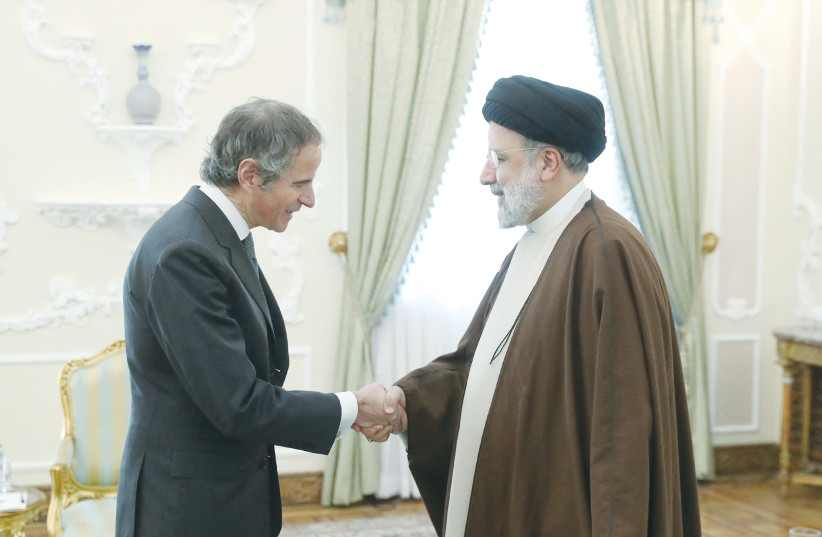A new agreement with Iran will not prevent it from attaining a nuclear weapon, Prime Minister Benjamin Netanyahu warned on Sunday.
“Our first mission is to stop Iran from going nuclear,” Netanyahu said at the opening of the weekly cabinet meeting. “We made clear to our American friends time after time, and I am doing it again today, that we oppose agreements, first of all to the original agreement called the JCPOA (Joint Comprehensive Plan of Action), which will just pave Iran’s way to the bomb and will pad it with hundreds of millions of dollars.”
Netanyahu said that his “principled opposition” to the JCPOA played a part in ensuring the US does not return to that deal.
“We also tell [the Americans] that more limited understandings, what’s called a ‘mini-deal,’ does not serve our purpose, in our opinion, and we oppose that, as well,” he said.
The prime minister added that “Israel will do whatever it needs on its own to defend itself from Iranian aggression, whether on the nuclear file or its terrorist proxies.”

Western official: The US-Iran nuclear deal is meant to stop Israel from attacking Iran
A Western official told Reuters over the weekend that the objective of the impending nuclear deal between the US and Iran is to stop Israel from attacking Iran.
“If [the] Iranians miscalculate, the potential for a strong Israeli response is something that we want to avoid,” the official said.
The US and Iran are close to concluding a series of unwritten understandings by which the US would provide sanctions relief in exchange for Iran limiting its nuclear program, according to numerous diplomatic sources in recent weeks.
The sides negotiated indirectly via Oman after talks last year did not bring the sides back to the JCPOA, as President Joe Biden promised in his 2020 election campaign.
The deal would have Iran halt its uranium enrichment at 60% purity, far beyond the 3.67% permitted in 2015, but below the 90% needed for a nuclear weapon. The US warned in the talks that it would exact a heavy price from Iran if it enriches to 90%.
Iran would also free Americans it is holding in prison, stop selling ballistic missiles to Russia, and stop its proxies’ attacks on US contractors in Syria and Iraq, according to The New York Times.
The US would waive nearly $20 billion in sanctions, and not add further sanctions or pursue resolutions against Iran in the UN Security Council or the International Atomic Energy Agency.
State Department spokesperson Matthew Miller has repeatedly denied there was any deal with Iran, but he may be relying on semantics and the Biden administration is avoiding an agreement in writing in order not to trigger the Iran Nuclear Agreement Review Act (INARA), which requires the president to give Congress the text of any deal regarding Iran’s nuclear program and triggering a 30-day review period.
An Iranian official told Reuters, “Call it whatever you want, whether a temporary deal, an interim deal or a mutual understanding – both sides want to prevent further escalation.”
Also Sunday, US Assistant Secretary of State for Near Eastern Affairs Barbara Leaf embarked on a trip to the region, starting in Israel and the Palestinian Authority, followed by Jordan.
The State Department said she will be meeting “with senior Israeli political and military leadership to discuss expanding and deepening Israel’s integration into the Middle East and constraining Iran’s destabilizing behavior.”
